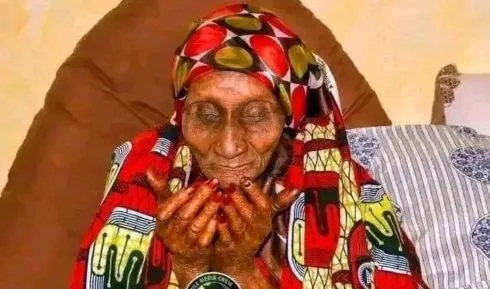Physical Address
Lagos,Nigeria.


Her life was an extraordinary journey that spanned nearly a century, during which she became a matriarch to some of Nigeria’s most prominent political figures.
As the mother of a president, vice president, governor, three first ladies, and a senator, Dada Yar’Adua’s legacy is a testament to her enduring influence and the impact of her family’s contributions to Nigerian politics.
Dada Yar’Adua was married to Musa Yar’Adua, a distinguished politician who served as the Minister of Establishment, Nigerianisation, and Training, and later as the Minister of Lagos Affairs during Nigeria’s First Republic.
He also held the traditional title of Mutawallen Katsina, signifying his role as the chief financial officer of the Katsina Emirate. Together, they formed a powerful partnership that laid the foundation for a family deeply involved in Nigeria’s political landscape.
Dada Yar’Adua’s children have held some of the highest offices in Nigeria:
Her son, Umaru Musa Yar’Adua, served as the Governor of Katsina State before becoming Nigeria’s 13th President. His presidency, marked by a focus on the rule of law and anti-corruption, was cut short by his untimely death in 2010.
Another son, Shehu Musa Yar’Adua, was a key figure in Nigeria’s military and political scenes. He served as the Chief of Staff, Supreme Headquarters (de facto Vice President) under General Olusegun Obasanjo’s military regime from 1976 to 1979.
She was also the mother of Murtala Shehu Yar’Adua, who served as a minister under President Goodluck Jonathan, continuing the family’s legacy of public service.
Another notable figure is Abdulaziz Musa Yar’Adua, a retired military officer and current senator representing Katsina Central senatorial district at the Nigerian National Assembly.
Dada Yar’Adua’s influence extended beyond her immediate children. Her granddaughters have also played significant roles in the political scene:
Three of her granddaughters became first ladies, each married to governors of different Nigerian states: Kebbi, Bauchi, and Katsina. Their roles as first ladies have allowed them to contribute significantly to social and community development initiatives in their respective states.
Dada Yar’Adua’s life story is not just about her family’s political achievements but also about the values she instilled in them.
As a centenarian, she witnessed Nigeria’s transformation over the decades, from colonial rule to independence, and through various political regimes, leaving behind a lasting legacy that will be remembered for generations.
Hajiya Dada Yar’Adua’s passing marks the end of an era, but her legacy lives on through the influential roles her children and grandchildren continue to play in Nigerian society.
Her life’s story is a powerful reminder of the impact one individual can have across multiple generations, shaping not just a family but a nation.